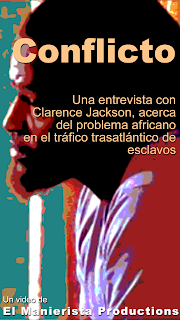Eso es entonces apenas natural, ya que los intereses no
existen en abstracto sino en esa consistencia de lo personal; pero como una
relación peligrosa, en que el peso del egoísmo y la mezquindad arrastra a la
inteligencia en su falta de alcance. Es por eso que este esfuerzo no debería
estar sesgado por esas limitaciones personales, no importa la premisa; y eso por
una cuestión incluso práctica y no moral, en tanto proyección personal, que
nunca generará la confianza que necesita.
La experiencia ha mostrado que como objeto común, la expresión
política ha de ser colegiada; asumiendo la reunión de todos los intereses, no
importa lo difícil que sea, y hasta las contradicciones que eso implica. En
definitiva, la contradicción es sólo el condicionamiento de toda proyección,
más allá de lo personal; que así deviene en práctica, en vez de sublimarse en
el idealismo, cuya falsa moral la hace inconsistente.
El mismo hecho de que alguien lo reconozca y no se atreva
a cruzar ese límite, sería la señal de peligro; que no reside en la
legitimidad, sino en la inconsistencia, terminando por socavar esa legitimidad.
¿En definitiva, si una proyección es tan personal, cómo puede ser legítima y
coherentemente política?; ese es el contrasentido que secuestró a la revolución
cubana, conduciéndola al desastre antropológico que es.
Eso es lo que, por ejemplo, permite la manipulación en
discursos que secuestran la fuerza colectiva; haciendo que los conflictos sean
insolubles, abstraídos a su legitimidad, tras el prestigio personal; que es en
definitiva aparente, ocultando sus falencias inevitables, y que no tendría que
ser tan importante. Lo práctico es entonces lo que permite la solución de los
problemas, explotando todas sus aristas; pero para lo que tiene que ir más allá
de lo personal, desconfiando de ese genio sublime que no puede negociar.
O quizás no, sino que ese puede ser precisamente el
propósito, en un esfuerzo solapado por ese ascendiente; que con su fe en lo
político marca al liberalismo desde su nacimiento, con la Modernidad. También quizás,
esto provenga de que esos líderes no son genuinamente negros, sino sólo por
defecto; porque los blancos les recuerdan que no son blancos, siendo negros por
resentimiento y no por valores positivos. Esto explicaría esa dependencia del liberalismo
blanco, que a cambio los usa como moneda de cambio; pero debilitándolos tanto
que no pueden intentar ningún esfuerzo efectiva, dado que su consistencia es
ideológica y no existencial.
Eso explicaría la incapacidad anterior para actuar en una
mediación efectiva ante la fuerza política de los afroamericanos; a los que no se
puede presentar una alternativa suficiente, en esa inconsistencia, que nos sume
en su misma ambigüedad. Para eso necesitaríamos una proyección que comprenda
incluso nuestro conservadurismo, que es pragmático y no moral; e incluso la
verdadera hondura en una nueva profundidad ontológica, en vez de repetir
lugares comunes con la mera esperanza de —por fin— hacer filosofía.
















